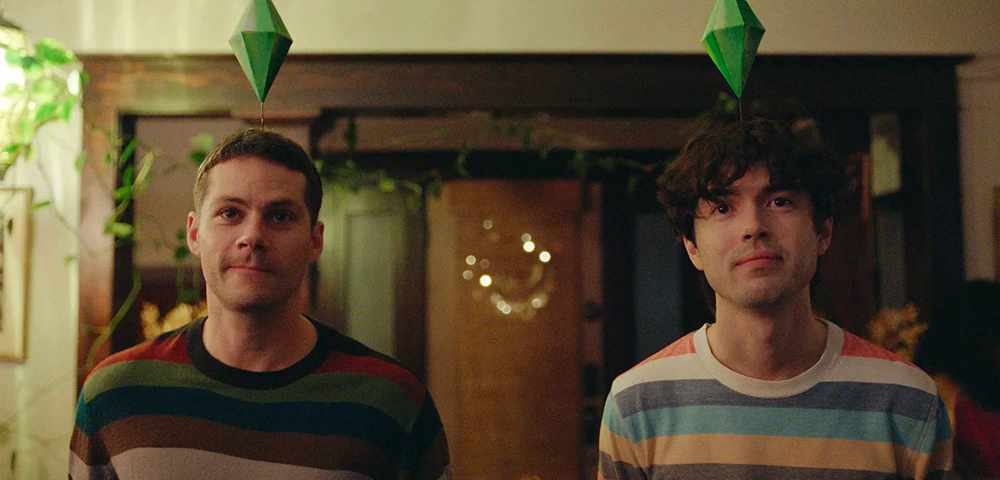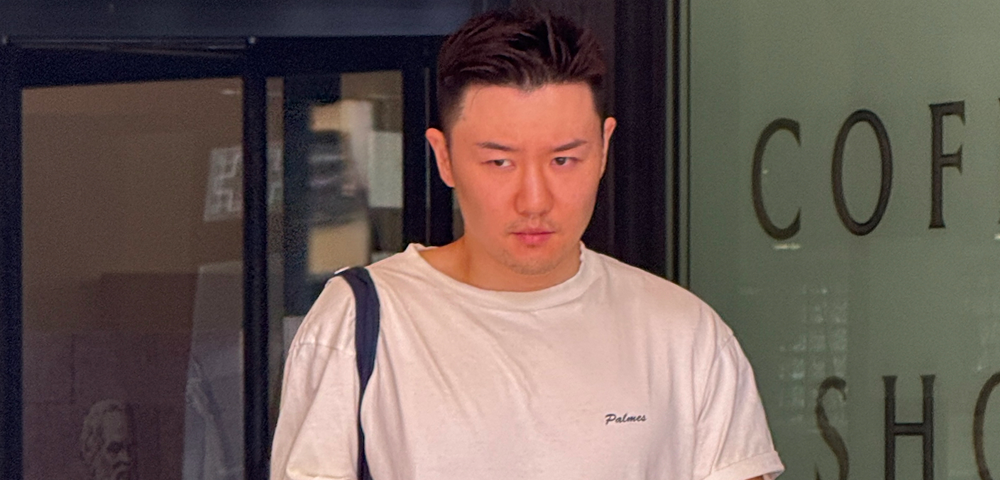
The pied piper of pop
While Mika’s recently-released sophomore album The Boy Who Knew Too Much is yet to scale the chart heights of its predecessor — lead single We Are Golden proved a little too divisive for some, with its jingle-worthy children’s choir — creatively speaking, it’s a solid continuation of the hook-heavy pop he crafted on his five-million selling debut, Life In Cartoon Motion.
When Sydney Star Observer spoke to the singer, he was remarkably animated, considering the circumstances: at just past 1am in San Francisco, he’d earlier that night performed a concert under somewhat trying conditions.
“I’m a little bit beaten down. Unfortunately last night I tore a tendon in my left foot, so I performed with a foot brace on tonight,” Mika said, his slightly odd, boundaryless accent betraying no hint of his Lebanese heritage or the nine years spent living in Paris before his family moved to London.
Like those other purveyors of quirky, camp pop, the Scissor Sisters, Mika has an odd relationship with America, where radio stations shy away from music that doesn’t fit neatly within the confines of a particular genre.
“The thing is, I play venues here that artists who get a lot of radio play can’t sell out,” he said matter-of-factly.
“It’s really bizarre, and it’s all based on the internet. Every time I tour here, it gets bigger — I had no idea I could ever get to a point where I could play to 5000 people a night in the US, without being played on the radio.
“I feel rejected by the mainstream in America, and in some ways I kind of exist in my own space, but the reactions on this tour have been great. Because people here feel like they’ve discovered me themselves, the subsequent reaction is really visceral and heartfelt.”
And there are perks to being a Mika fan. To celebrate the release of The Boy Who Knew Too Much, the star invited fans via Twitter to come for a drink at his local pub — his shout. It ended up costing him 25,000 pounds.
“All these record company bigwig-style things were being organised when the album came out, and I thought ‘This is rubbish, why don’t I just organise something on Twitter’. Although Twitter can be so invasive, there’s a flash mob side to it which I love. You can do these guerilla events, and people show up.
“On the last day of recording my album in LA, I set up this game over Twitter where people had to find an ice cream truck — I was dropping clues to where it might be — and if you found the ice cream truck, you got a free ticket to my show at the Roxy Theatre. That’s the side of Twitter that I really like. The side that’s all about ‘I’m going to the bathroom now,’ I don’t like.”
So is he the Willy Wonka of Twitter, leading fans on elaborate treasure hunts?
“I don’t know about Willy Wonka! That sounds kind of sinister and wrong,” he chuckled.
And there’s nothing sinister about Mika. The Boy Who Knew Too Much flits from the requisite power ballad I See You to the Pet Shop Boys-esque electro of Rain (a song he nominates as his favourite on the album. “If I was 16 I would dance alone in a club to it, and dancing alone at 16 is a big thing, because it means you don’t want to sleep with anyone around you,” he said.), but maintains a sunny optimism throughout.
“The first album was a product of my childhood, that’s fair to say. With the first album I was running away from my adolescence. With this one I was dealing with, and facing up to, my adolescence, I thought, you know what, I’m going to revisit this time in my life when things were less than ideal, and I’m going to rewrite it the way I want it to go.”
It’s a curious state of arrested development for a man of 26, but as someone who suffered severe schoolyard bullying as a teen, Mika said he liked the idea of rewriting history through his music.
“I think I’ve always loved the underdog, the outsider, and embracing the fact that I’ve always been the outsider myself. I love the idea of raising up the underdog in almost a manga sort of way, to the point where the underdog becomes a superhero.
“You know that movie Barefoot In The Park? There’s this line where she’s talking to her drunk husband, and she says, ‘My dear, there are watchers and there are doers in this world, and you’re the watcher.’ I used to love that when I was a kid, because I’d think, I want to be the watcher, I want to be the stalker — the loser watching from a distance.”
And he thought the Willy Wonka analogy sounded creepy.
Much has been made of Mika’s sexuality in the years since since his breakthrough single topped the charts — when you sing about yearning to be Grace Kelly in a ball-tearingly high falsetto, it seems inevitable that some question your place on the Kinsey scale. After keeping mum on the topic, he finally relented a couple of months ago, telling a Dutch gay magazine to “call me bisexual, if you need a term for me”. For some pundits who had the singer pegged as gay, the admission still wasn’t good enough.
“There’s a very strange disconnect in the way my sexuality is approached. I think the one thing people are fascinated with is the way I don’t like labels,” he said.
“I often feel I discuss sexuality far more than most other artists. I get that — it’s part of the fabric of what I do, I’m fascinated with sexuality, it permeates so many of my songs. That throws out the accusation that I’ve been operating from a position of fear or commercial paranoia; you can’t say that when I write songs with lyrics like I do.
“I just think there are ways of discussing sexuality without labels. I understand I speak from a position of privilege — I’m not living on a farm, 40 years old and feeling scared; I’m not 13 and being beaten up. Or at least I’m not any more, I have been in the past.”
Male pop stars like Freddie Mercury and David Bowie have used sexual ambiguity as a way to experiment with everything from their clothes to their lyrics. Was that part of Mika’s reluctance to define his sexuality — that being ambiguous affords him greater creative freedom?
“I think it’s always important to experiment creatively, but also in your real life, quite frankly,” he laughed knowingly.
“Put it this way: I’ve never put any limits on who I would go out with or who I would sleep with.”
info: Mika plays the Enmore Theatre on November 24. Tickets through Ticketek. The Boy Who Knew Too Much is out now.









